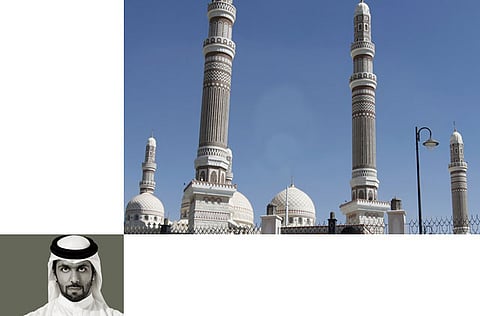What secularism means to us
It isn't a foreign idea and need not carry anti-religious connotations

I think I was 11 when I first heard the word almaniyah, secularism in Arabic. It wasn't conveyed to me as a particularly good thing. As a matter of fact, for a few more years I would hear it used interchangeably with atheism; I assumed they were synonyms. After all I was a child of the late Eighties and the Islamic awakening was in full throttle.
But secularism to Arab Muslims perhaps meant something very different than it might have to existential Frenchmen. After all, Europeans were able to reconcile secularism with Christianity citing "Render to Caesar the things that are Caesar's, and to God the things that are God's" (Mark 12:13-17). However, the interpretation of secularism — rather than the definition — by Vladimir Lenin and Mustafa Kemal Ataturk, the respective founders of the Soviet Union and modern Turkey with whom we had first-hand experience — meant that it would irrevocably mean something far more dogmatic.
The ferocity with which the Soviets opposed all things faithful and later fought the Muslims in Afghanistan and the determination with which Turks surgically attempted to remove all things Muslim from their country left little room for any positive connotation of secularism among Arab Muslims.
Of course, the founding of the Muslim Brotherhood movement, just five years after the fall of the Ottoman empire, was an attempt to recreate a theocratic leadership for the Muslim lands that would've ideally rallied the disenfranchised Arab Muslim ex-subjects of the empire. Alas, colonialism — and pretty much everything that followed — would not allow the Brotherhood's ambitions to be.
Contextual relativity
But had someone come to the early Muslims and told them that roughly 1,300 years later a group of people would come and advocate recreating the same environment and level of piety by which they lived, they would've thought it very strange. The Prophet Mohammad (PBUH) made his contemporaries very aware that they were living through a period of exceptional spiritual enlightenment that would only be replicated in the final period leading to the end of days. A number of widely corroborated sayings (hadith) of the Prophet support this view; most famously, him informing his contemporaries that there will come a group of Muslims after them whose rewards will be 50 times greater than theirs — his contemporaries. When they asked how this could happen, he explained that they will bear far more than they can.
Collectively, the Islamic empires were spatially expansive and ruled through several eras. Many fatwas were issued due to specific geo-cultural or periodic developments. In other words, Islam is a religion of contextual relativity, not absolute dogma.
But if we accept the tenets of specificity and relativity, where does that leave Islam and secularism? Well, according to Musnad Ahmad Bin Hanbal, Hadith 12,086 and Sunan Bin Maja, Hadith 2,462, Prophet Mohammad (PBUH) once came across people artificially pollinating palm trees, and he disapprovingly commented that it would be better if they didn't pollinate the trees. However, the harvest was poor the following year and the Prophet admitted his limitation of knowledge regarding the affair and said: "If a question relates to your worldly matters, you would know better about it, but if it relates to your religion, then to me it belongs."
Religion and the state
For many, including Ibn Rushd (or Averroes to the Europeans), a highly noted Islamic scholar and jurist, that was the Islamic equivalent of the Christian God and Caesar's role distinction. Following his book, The Decisive Treatise, which provided the philosophical justification for the doctrine of separating religion and state, Ibn Rushd was crowned the founding father of secular thought.
For the last 100 years or so, Arab Muslims have oscillated between acts of importing ideologies that were spatially foreign and the resurrection or generalisation of previous specific religious practices. All the while they were eroding their own capacity to contextualise their own present and their own culture.
Secularism isn't a foreign idea and need not carry anti-religious connotations, let alone atheistic ones. If anything, it is an earthly complement to divine religion. It is merely an understanding and appreciation of the capacity of the human mind, God's greatest gift to man, to be wise on earth and find answers to earthly questions that arise.
At the end of The Decisive Treatise, Ibn Rushd notes that human wisdom and divine law are akin to milk-sisters and expresses his sorrow over their disagreement, which he attributes to the devices of ignorant friends of both. Left to each other, the milk-sisters are "companions by nature and friends by essence and instinct".
Mishaal Al Gergawi is an Emirati current affairs commentator. You can follow him at www.twitter.com/algergawi


